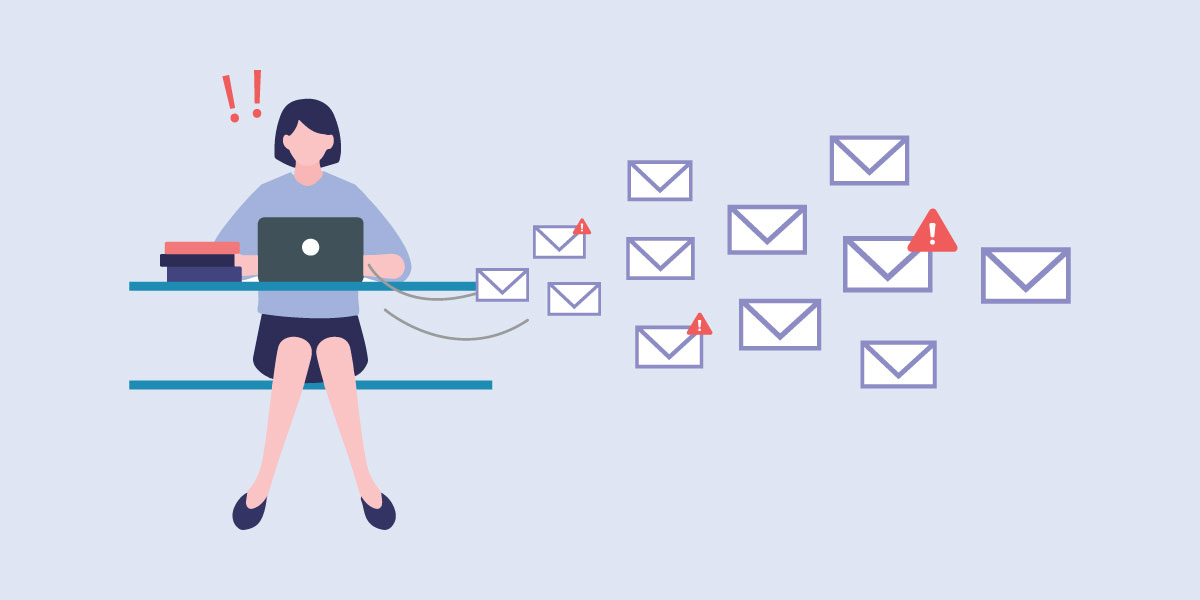Intro
Invalid, catch-all, disposable, free, and role-based email addresses can have various impacts on a campaign, depending on the specific circumstances and goals.
Users of MailboxValidator email validation service would know that we can classify an email address as invalid, catch-all, disposable, free or role-based. In this article, we’ll explore what these classifications mean and how they will affect your email marketing campaign.
Invalid email address
MailboxValidator can determine if an email is either valid or invalid. Whenever an email is classified as invalid, it can be due to a multitude of reasons. Below are some of the common ones:
- Mail server did not return a valid response when our validation system tried to verify the email address.
- Unable to connect to the mail server.
- Email address domain is in our disposable email provider list.
In general, we do not recommend that you send any emails to invalid email addresses.
Catch-all email address
Now, this one is quite tricky. While we don’t consider catch-all to be invalid emails, there are risk involved if you want to send an email to them. Previously, catch-all emails were used to catch any wayward emails that were incorrectly addressed. If you were sending an email to james.good@example.com but your fat fingers accidentally typed james.goode@example.com then your email would have been lost. On the other hand, if the mail server has catch-all enabled, that email would have gone to the catch-all address instead. The mail server admin can then redirect it to the correct recipient if necessary.
Unfortunately, some mail servers will indicate that an email address is valid but when you shoot an email to that mailbox, it will be bounced. Devious, right? Some servers employ catch-all as a form of anti-spam measure. Hence, you will be sending emails at the risk of being blacklisted as a spammer.
Disposable email address
For an email marketing campaign, you should never bother sending any emails to addresses marked as disposable. The reason is in the name. Those email addresses are long gone, recycled into the oblivion. Nobody will receive it.
Free email address
Almost everyone should have a Gmail, Hotmail, Outlook, Yahoo, etc. email address. Those are free email address providers. Nothing wrong with sending emails to these, most of the time. Do note that some of these email addresses might also have been repurposed into spam honeypots. Usually this happens after the email address has been dormant for a certain period of time.
Our advice is to conduct a re-engagement campaign where you send an email query to those email addresses after a certain period. This will determine if the user is still actively checking that mailbox or not. If you don’t get a response, unsubscribe that email address from your mailing list.
Read more about mailing list aging and re-engagement campaign.
Role-based email address
Role-based emails serve a specific purpose. You will see them with names like sales@example.com or support@example.com because they connect you to a group of people who can render the particular service that you need. No harm in sending marketing emails to them. You just need to hope that none of the recipients in that group marks you as a spammer. So, this one is up to your own judgement whether to send them marketing contents.
Conclusion
As you can see from the above, there are things that you need to be aware of whenever you perform an email marketing campaign. These addresses may result in delivery issues, lower engagement rates, transient communication, lower lead quality, and limited personalization. You can take a closer look at your MailboxValidator results the next time you screen your mailing list before your campaign.
Get started with MailboxValidator
Improve your email deliverability and sender reputation in email marketing.
Register today and clean your email lists for FREE!

